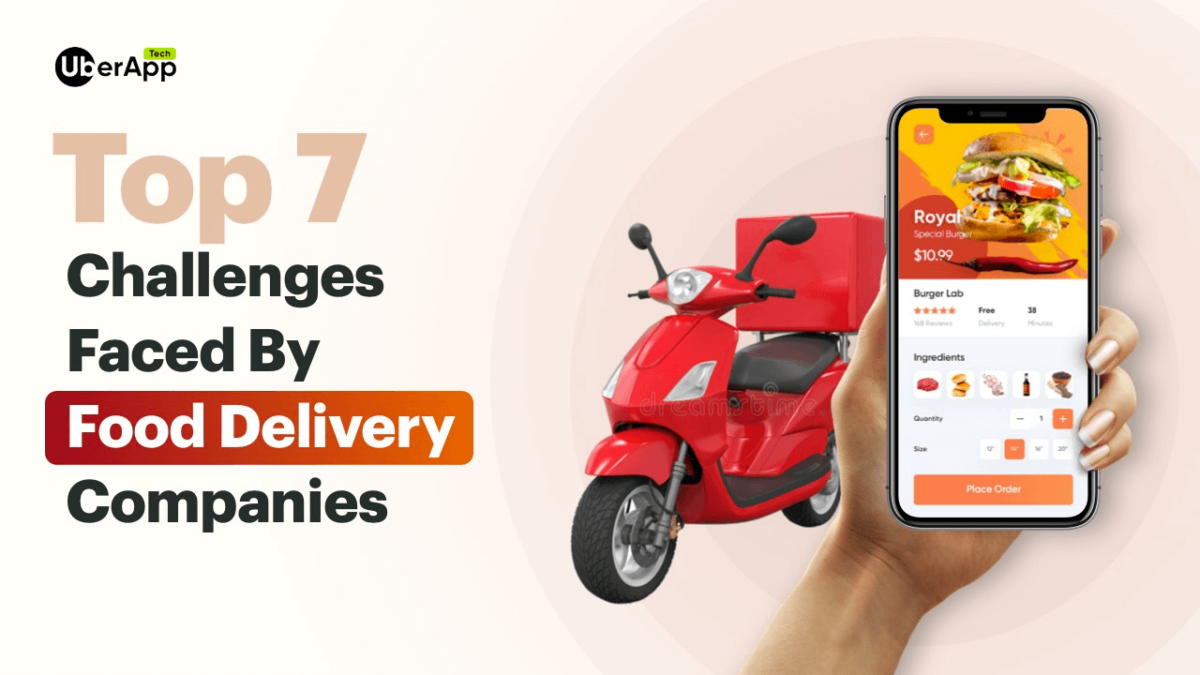
Going into 2021, we all have witnessed or been part of a trend that has been set up during the pandemic. Customers are moving away from the dining-out trend and entrusting home delivery services. This has largely accelerated technological growth. No wonder the online marketplace is currently being led by food delivery services. Statista suggests a projected market volume of US$182,327m by 2024 in online food delivery services. With this comes prominent challenges faced by food delivery companies around.
Food delivery companies are constantly acquiring a significant number of new customers every day. With the changing marketplace and future opportunities, many related start-ups and companies are entering the market with greater drive and push. This made the marketplace competitive and challenging for companies to capture. We are now going to point out and understand the top 7 challenges faced by food delivery companies nowadays.
Because of the massive demand for online orders, the delivery of food from a restaurant far from the place of the customer while maintaining the highest quality becomes extremely difficult for the delivery partners. The difference in the food served at the restaurant premises and delivered to one’s doorstep creates a significant loophole that is difficult to overcome by food delivery companies.
Why do customers equate the quality of food served in restaurants with the quality delivered?
Talking of quality delivered, we come across another aspect: The delivery. Customers nowadays highly criticize food handling by the delivery valet. Why? It is due to the lack of training that delivery drivers face this issue of mishandling orders. To ensure that their drivers handle food properly, only a few food delivery companies have adequate measures in place.
The absence of hygiene leaves many customers concerned, and that is one of the main reasons why restaurants need to ensure proper training to optimize the experience of food delivery and maintain control over delivery times.
Any food delivery service’s ultimate objective would be to increase its market share by offering customers the best possible value at the least possible cost. The marketing game has been raised to such a level by food delivery market players that customers are spoilt for choice even as competition grows. This makes the client base unstable and has an impact on brand loyalty. Indeed, the more options you give to your customers, the more they get spoiled.
Apart from fluctuating customer preferences, one more thing that fluctuates quite often is the term called ‘Market Prices’. The prices in the food industry are determined by many variables. Food distribution companies that do not control or keep up with consumer rates fail to find the correct pricing strategy.
As a strategy, food delivery services will have to concentrate on implementing aggressive and defensive pricing models to compete with their rivals. All this puts margins under much greater pressure which greatly affects profitability. Customers always want more than what is being given.
Regardless of how broad the captured market might be, if corporations are unable to meet consumer demands, it is a failed attempt. A customer is always right and he/she is entitled or obligated to be offered the best. The customer satisfaction aspect herein is not the responsibility of the delivery partners alone, but also the restaurant employees who work at the point of origin. This eventually becomes a challenge.
Filling the void between distribution partners and restaurant owners to work together and proactively meet consumer expectations becomes a daunting task in the long run.
Food delivery is becoming increasingly popular with each passing day in this digital age where everything is accessible with a single tap. Given this increasing popularity, do the restaurants have efficient logistics operations to deal with this ever-increasing demand?
The logistics problems faced by start-ups in food distribution are enormous. Listed below are some of the critical logistics-related issues that food delivery companies face today:
When deciding on the perfect last-mile logistics model for the business, both restaurants & delivery services must keep all these pointers in mind.
A food delivery player that is already developed and popular among the masses takes up a great market share. This leaves very little space for the other players to compete. Big names such as Amazon and Uber are all set to compete with Amazon Restaurant and UberEats respectively for the food delivery market.
Old food industry players such as Subway, Starbucks, and Barista feature in the competition, too. They already have an existing financial & operational capital needed to meet consumer demand as well as battle their way against the competition. This creates one of the greatest obstacles for the market’s small and upcoming players to achieve a higher value and a wide customer base.
Online ordering and doorstep food delivery will continue to flourish in the times to come. The need for the hour is to keep the customers’ interests in mind. Of course, challenges faced by food delivery companies are only going to rise ahead. But food delivery companies need to think of better ways to overcome these problems that can lead the delivery marketplace to further growth and development.
Keeping these facts in mind, a smart and fully equipped food delivery app is needed to handle deliveries without hassle. Code Brew Labs provides all the best-in-class functionality to support a company in this intensely competitive market for food distribution. Get In touch with our highly experienced team and let us brew real success for you.
September 26, 2022